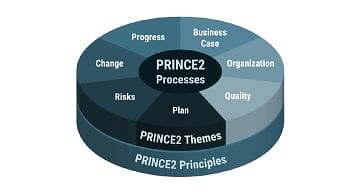CATEGORIES
- Generative AI
- AI & Machine Learning
- Data Science & Business Analytics
- Project Management
- Cyber Security
- Agile and Scrum
- Cloud Computing & DevOps
- Business and Leadership
- Software Development
- Product and Design
- IT Service and Architecture
- Quality Management
- Digital Marketing
OBJECTIVE
PARTNERS
Certifications
Get in-demand, industry-recognized certificates
Career Aligned Learning Paths
Master essential skills for your dream career
Project Management Courses
Elevate Your Career with Project Management Courses
Explore a wide range of project management courses at Simplilearn and gain the essential skills to lead successful projects. From beginner to advanced levels, our comprehensive courses offer practical knowledge, industry-relevant techniques, and expert guidance. Start your journey for a skilled project manager today!
Our Program Partners :
Simplilearn’s Most Popular Project Management Courses
Explore Simplilearn’s top Project Management Courses and take the first step towards career success

 View Program
View Program
 View Program
View Program
Our Project Management Courses Duration And Fees
Project Management Courses typically range from a few weeks to several months, with fees varying based on program and institution.
| Program Name | Duration | Fees |
|---|---|---|
| Professional Certificate Program in Project Management Cohort Starts: 24 Apr, 2025 | 10 weeks | $2,500 |
| Professional Certificate Program in Project Management Cohort Starts: 24 Apr, 2025 | 10 weeks | $2,500 |
| PMP® Plus | 7 weeks | $1,849 |
| PMP® Renewal Pack Bundle | 3 weeks | $649 |
| PMP® Certification Training Classes starting from: 18 Apr, 2025 | 4 weeks | $699 |
| PRINCE2® Foundation and Practitioner Classes starting from: 26 Apr, 2025 | 4 weeks | $2,460 |
| CAPM® Certification Training Classes starting from: 10 May, 2025 | 4 weeks | $499 |
| PRINCE2® Agile Foundation and Practitioner Classes starting from: 10 May, 2025 | 5 weeks | $1,636 |
Career Growth Stories
The Professional Certificate in Project Management program includes five courses: PMP®, Agile Scrum Master, Microsoft Project 2021, Implementing a PMO, and a project management capstone. Each course consists of live online classes, on-demand learning, project-based tasks, and interactive labs. It helped me pass the PMI-PMP exam on my first attempt.
- Lisa LucchesiProduct Test EnggSr. Engg ManagerProduct Test EnggSr. Engg Manager
Need help finding your Program
Fill out this form and we will get back to youProject Management Course Advisors

Alan Robinson
Professor - Operations Management, University of Massachusetts AmherstAlan Robinson is a full-time professor at the Isenberg School of Management of UMass, a consultant and book author specializing in managing ideas (idea-generation and idea-driven organization) and building high-performance organizations, creativity, innovation, quality, and lean management.
Twitter LinkedIn
Bryan Campbell
President at 7 C's Consulting and Agile Project and Program ManagerBryan Campbell is a highly respected Agile Coach and Project Manager with more than 25 years of experience managing projects, programs and PMOs around the world. He specializes in agile transformation for enterprise, scale PMOs.
Twitter LinkedIn
Ravikumar Krishnan
LinkedIN: Top Project Management VoiceRavi is an PMI authorised trainer with over 21 years of experience in VLSI design and IT management. He is highly proficient in project, program, portfolio, and quality management, holding certifications in PMP, PgMP and PfMP from PMI and a Lean Six Sigma Master Black Belt.
Twitter LinkedIn
Sagar Zilpe
Senior Consultant - GRC FedRAMPHis career spans more than 12 years of product, business, and marketing experience focused on driving strategy, transformation, and product development.
LinkedIn
Tim Jerome
Project Management Expert and EvangelistTim Jerome is an international project management expert with over 15 years of experience at companies like Intel and Digital Network Services. A former president of the PMI Rio Grande Chapter, Tim is also a PMP instructor with over 10 years of experience in addition to his consulting experience.
Twitter LinkedIn
William Kennedy
Chief Project Manager TrainerProject Management professional with exceptional verbal communication skills/strong leadership/coaching/mentoring skills. Extensive experience managing/implementing complex applications/business solutions projects, consisting of large cross-functional matrix global teams of 500+ stakeholders.
LinkedIn
Project Management Learner's Reviews

Shilpa Bille
Assistant Vice President at Deutsche Bank GroupThe trainer is just amazing - brilliant, witty, has a vast knowledge of the subject as well as the industry. He gave practical and current examples and kept the session interactive. I liked the wa the training was conducted, the trainer's expertise, the course content, real-life examples and the way the course was facilitated.

Jodie Toliver
Sr. Technical Project ManagerThe course was an excellent opportunity to review & discuss each of the knowledge areas. Mike shows a genuine interest in the groups success & really makes an effort for the team. I am very happy to have mike as a facilitator & a subject matter expert. Great stories.

Aniruddha Kulkarni
I wanted to thank Simplilearn for all your assistance with both the PMP and ITIL training classes. Both sessions have been up to the competency level that was promised to me and I had great experience studying and connecting with others as well. I would recommend these training classes to aspirants.

Conley Moore
Director of IT - Product Quest/Ei SolutionWorks @ Ei - A Pharmaceutical SolutionWorks™If anyone is looking for an online PMP training or any other career certifications, Simplilearn is the place to start. The content is good and the trainers are very helpful. I highly recommend Simplilearn.
Know More About Project Management Courses
Best Project Management Courses For Advancing Your Career
Choosing the right course sets the foundation for a successful career for both project management professionals and aspiring candidates. This blog brings insights into some of the most popular project management certification courses and online courses.
Below, each course has been discussed in detail, from the curriculum and key focus areas to the career benefits. Whether you want internationally acclaimed certification or affordable project management courses online, these courses have to offer all-around training to suit varied needs.
Some of the best project management courses offered by Simplilearn are:
PMP® Certification Training Course
This comprehensive program will prepare professionals for the certification PMP® examination. It provides a detailed overview of project management fundamentals, allowing you to master industry-standard methodologies and best practices in project planning, execution, and control.
Prerequisites:
-
Four-year degree with no fewer than 4,500 hours leading and directing projects + 35 hours of project management education; or
-
High school diploma (or associate degree) with 7,500 hours leading projects + 35 hours of project management education.
Focus Areas:
-
Lifecycle Management (Initiate/Plan/Execute/Monitor/Close)
-
Risk, Cost & Quality - Identification of Risks, Budgeting Skills, and Quality Assurance
-
Stakeholder & Integration - Stakeholder engagement and integration of project processes
Job Opportunities:
Graduates of this course can become Project Managers, Program Managers, Portfolio Managers, IT Project Managers, or Engineering Project Managers practically anywhere in the world.
Post Graduate Program In Project Management
The program PG certification in Project Management encompasses advanced project management methods, both traditional and agile while stressing the strategic planning aspects of leadership and real-world applications through case studies and simulations.
Prerequisites:
-
Usually requires a graduate or bachelor's degree.
-
Relevant work experience in project management or related fields is preferred.
Focus Areas:
-
Comprehensive Methodologies: Covers PMBOK, agile frameworks, and hybrid layers in project management.
-
Risk and Change Management: Focuses on the identification, analysis, and effective mitigation of project risks and change management.
-
Leadership and Strategic Planning: It sets the ground for advanced training in team leadership, decision-making, and strategic project alignment with business goals.
-
Practical Applications: Theoretical concepts are reinforced by case studies, simulation exercises, and real-life scenarios.
Job Opportunities:
Graduates are well-positioned to advance to various industries and take senior roles as Senior Project Manager, Program Manager, Portfolio Manager, or Project Director.
CAPM® Certification Training Course
This course comprises complete CAPM-taking candidates training. It introduces all essential concepts and practices of project management, securing a solid grip over the core principles of the PMBOK® Guide.
Prerequisites:
-
Secondary degree (high school diploma/associate degree or equivalent)
-
23 contact hours of project management education completed prior to the examination
Focus Areas:
-
Introduction of Fundamental Concepts: Basic principles and terminology pertaining to project management
-
Project Management Processes: Detailed initiation, planning, execution, monitoring, and closing
-
PMBOK® Guide-Aligned: Thorough coverage of the knowledge areas and process groups seen in the PMBOK® Guide
-
Exam Readiness: Interactive sessions, practice tests, and modules led by subject-matter experts to prepare students for the exam
Job Opportunities:
Graduates will be able to pursue junior roles within the Project Coordination, Project Assistant, or Junior Project Manager.
PMP Plus Program
This program is meant to develop skills in team management and resource planning while allowing participants to gain several high-level certifications—PMP, Agile Scrum Master, and Lean Six Sigma Green Belt.
Prerequisites:
-
A bachelor's degree or equivalent is preferred.
-
Previous experience in project management or similar disciplines is an asset.
-
General knowledge of project management concepts is useful.
Focus Areas:
-
Team Management & Resource Allocation: Build leadership competencies to manage teams and allocate resources efficiently.
-
Certification Readiness: Obtain qualification for PMP, Agile Scrum Master, and Lean Six Sigma Green Belt.
-
Professional Development Units: Gain more than 60 PDUs to renew and improve professional certifications.
-
Thorough Curriculum: Master nine important domains of project management, such as planning, risk management, quality control, and strategic alignment.
Job Opportunities:
Graduates are prepared for senior positions like Project Manager, Program Manager, Operations Manager, and Process Improvement Specialist in various industries.
PRINCE2 Foundation and Practitioner 7th Edition Certification Training
The course accelerates your career by getting you ready for both the PRINCE2 Foundation and Practitioner exams. It empowers professionals with the techniques and tools required to customize and implement the PRINCE2 methodology for successful project management and execution in various environments.
Prerequisites:
-
Having an undergraduate degree or high school diploma
-
Successful passing of the PRINCE2 7 Foundation Exam to be eligible for the Practitioner exam
-
For existing certification in PRINCE2 6 Foundation candidates, direct registration for the Practitioner exam can be done. Still, it's advisable to start with the training for 7 Foundation because there are new words and new materials.
Focus Areas:
-
PRINCE2 Methodology: Through the study of the PRINCE2 principles, themes, and processes
-
Tailoring PRINCE2: Methods to use PRINCE2 practices on different project settings
-
Change and Risk Management: How to manage change, evaluate risks, and conflict resolution
-
Exam Preparation: Instructor-led comprehensive classes, case study discussions, and online resources for developing exam readiness
-
Practical Application: Project simulations and real-life scenarios using hands-on experience that focus on effective project execution
Job Opportunities:
Graduates pursue positions like Project Manager, Project Director, Project Management Officer (PMO), and Product Owner.
PRINCE2 Agile Certification Training Course
PRINCE2® presents a systematic, process-related way of managing projects. Used extensively in the UK and as well as in Europe, it is for those employed in stricter process dependency environments.
Prerequisites:
-
A candidate should have a basic understanding of project management concepts at the very minimum
-
Some knowledge of PRINCE2® or agile principles would be an advantage
Focus Areas:
-
Structured Method: Detailed examination of the PRINCE2 approach relating to principles, themes, and processes.
-
Risk and Quality Management: Learn how to manage risk and maintain quality throughout the project life cycle.
-
Unambiguous Project Phases: Step-by-step guidance on project starting, planning, implementation, and ending.
-
Documentation: Learn the skill of developing in-depth project documents for effective communication.
Job Opportunities:
Candidates can take up the positions of Agile Project Manager, PRINCE2® Agile Certified Project Manager, Agile Coach, or Project Management Consultant.
Post Graduate Program in Project Management Certification Training Course
This program offers both traditional and agile methods and prepares learners to develop the skill sets critical to thriving in dynamic project environments and converting those into globally accepted certifications.
Prerequisites:
-
A bachelor's degree or equivalent qualification.
-
Professional experience in the project management field or a related field is preferred but not required.
-
An understanding of the basic principles of project management is an advantage.
Focus Areas:
-
Comprehensive Curriculum: Detail about traditional and agile project management methodologies, including risk management, quality management, and strategic planning.
-
Practical Applications: On-the-ground case studies, real-world simulated events, and interactive exercises to close the theorized practice gap.
-
Certification Preparation: Structured coaching on how to prepare for globally recognized project management certifications.
-
Leadership and Communication: On team management, stakeholder engagement, and strategy to ensure you get the project done successfully.
Job Opportunities:
After passing this certification, you can aim for the role of Project Manager, Program Manager, Portfolio Manager, or Project Director, to name a few.
Project Management Certification Training Course
This extensive certification training course aims to fill in all the gaps with a proper foundation for project management. It covers the required methodologies, tools, and best practices to empower professionals to manage projects effectively from initiation to completion.
Prerequisites:
-
Basic knowledge of project management is preferred
-
An undergraduate degree or a high school diploma is usually stipulatory
-
Work experience in the concerned field is an added advantage
Focus Areas:
-
Project Management Fundamentals: Grasp key concepts, methodologies, and frameworks undergirding the successful completion of projects.
-
Planning and Scheduling: Creating project plans, schedules, resource allocation, and budgeting.
-
Risk and Quality Management: Identify and analyze risks; develop risk mitigation strategies and quality control processes.
-
Stakeholder Engagement: Formulate strategies for effective communication and managing stakeholder expectations.
Job Opportunities:
When certified, the students can work as Project Managers, Program Managers, Project Coordinators, or Operations Managers in virtually every industry.
Conclusion
Looking specifically at the courses themselves can assist in making an educated choice about which project management training most aligns with your professional objectives. Each course listed above has advantages that are suited for various levels of experience and sectors of industry.
By broadening your skills with one of these in-depth programs, you set yourself up for a competitive advantage in the worldwide marketplace.
The project management courses offered by Simplilearn provide you with an opportunity to acquire hands-on experience coupled with industry-recognized certification that may prove to be transformational in your career.
FAQs Related to Project Management Courses
Project management involves planning and organizing a project and its resources. The process involves identifying and managing the project lifecycle, incorporating it into the user-centered design process, organizing the project team, and ensuring that it is successful throughout all of the phases of the project.
The process of planning, managing, and organizing projects is a task full of responsibilities, and project management involves the execution of all these essential tasks of an organization. Project management involves team members and managers who set predefined goals and objectives and take the responsibility of managing these teams and delivering work on time.
Every project team works under a project manager who sets goals, communicates with team members and manages and plans project deliverables, making project management the process of planning tasks and turning them into successful projects.
As per the Project Management Institute (PMI), project management is the application of knowledge, skills, tools, and techniques to project activities to meet the project requirements. The processes of project management are divided into five groups, namely:
- Initiating
- Planning
- Executing
- Monitoring and controlling
- Closing
The best programs in project management for beginners include:
- PRINCE2® Foundation
- CAPM - Certified Associate of Project Management
- CCBA® - Certification of Capability in Business Analysis
- Introduction to Project Management
The best intermediate programs in project management include:
- PMP® Certification
- PRINCE2 Foundation and Practitioner
- CBAP® - Certified Business Analysis Professional
- PMI-RMP® Certification
- PMI-PgMP® Certification
- MSP® Foundation and Practitioner
The best advanced-level programs in project management include:
- Post Graduate Program In Project Management
- PMP® Plus Master’s Program
- PMP® Renewal Pack
- Digital Project Manager
PMI states that the demand for project managers is growing faster than the demand for workers in other occupations. By 2027, companies will need an estimated 22 million people in project management-focused roles.
Becoming a project management professional can significantly boost your career prospects and you can aim for ambitious job roles such as:
- Project Director
- Senior Project Manager
- Program Manager
- Team Lead
- Project Management Officer (PMO)
The career path of a project manager requires the following attributes:
- Strong communication skills
- Advanced organizational skills
- Ability to handle multiple tasks
Achieving industry certifications gives you a greater edge if you aspire to become a project manager. If you are new to this field, the Certified Associate in Project Management (CAPM) is a solid entry-level certification. Next, you can go for Project Management Professional (PMP) certification, which is the most important globally-acknowledged credential for project managers.A project manager earns an average annual salary of $112,410 in the United States. Professionals with 10 to 20 years of experience in this field have the potential to earn up to $153,000 annually.
Project managers are required in almost all sectors but mainly in the following:
- Information Technology (IT)
- Manufacturing
- Finance
- Healthcare
The top employers of project management professionals include:
- HSBC
- Schneider Electric
- Honeywell
- American Express
- Bosch
Yes, you can cancel your enrollment if necessary. We will refund the program price after deducting an administration fee. To learn more, please read our Refund Policy.
* Disclaimer
All programs are offered on a non-credit basis and are not transferable to a degree.Simplilearn offers a range of Project Management Courses. Apart from this Post Graduate Program in Project Management, you can explore other Simplilearn courses like:
- Digital Project Manager Master’s Program
- PMP Plus Master’s Program
- PMP Certification training
- PRINCE2 Foundation and Practitioner
- CAPM Course
- Introduction to Project Management
Any professional seeking a project management career can take up this training program. It is best suited for project managers, team leads, Project Management Officers (PMOs), Scrum Masters, software developers, and project executives.
To ensure money is not a barrier in the path of learning, we offer various financing options to help ensure that this program is financially manageable. Please refer to our “Admissions Fee and Financing” section for more details.
No, a project management course does not require any coding experience.
The best project management course is the one that helps you build a strong foundation in the project management field. Apart from the theoretical concepts, it includes case studies, interactive quizzes, industry projects, simulation exams, and career assistance to help you land your dream job. It also prepares you to pass industry-recognized credentials like PMP Certification and PRINCE2 certification.
Project Management VS. Program Management
There is a stark difference between project management and program management. Project management refers to the task of organizing, planning, and executing projects. The project managers manage risks, allocate resources, and track the progress of the projects. These professionals also implement strategies to meet goals and deliver projects on time.
On the other hand, program management is more focused on long-term plans, it does not have any fixed deadlines to follow. A program manager entails a program with various projects and is responsible for managing several organizational projects at a time. A program manager has greater responsibilities toward organizational performance. The manager applies the necessary knowledge and techniques to achieve the organization’s goals.
Project Management VS. Project Portfolio Management
Project management is more focused on achieving the short-term project goals of an organization. In contrast, project portfolio management is more concerned with achieving the long-term goals of an organization. Project management is more dedicated towards undertaking a series of tasks and delivering them on a stipulated time. Similarly, portfolio management prioritizes objectives, business values, risks, and other factors that affect the long term.
Project Management Process
Project management is a wide area of management that mainly focuses on organizing, planning, and executing projects and delivering them to clients on time. This vast area of management can be broken down into smaller stages that begin with initiating the project and end with the successful completion of the tasks. The five crucial steps of the project management process are:
1. Project Initiation
The initial stage in the project life cycle, the project initiation process, involves the research required to begin a project. Initiation is the key stage of every project because it involves understanding major stakeholders, analyzing resources, establishing an objective, and setting up the goals that will be followed. The initiation stage is the most vital stage of project management as it involves key decisions and research that eventually lead to a final decision.
2. Project Planning
The second stage is all about planning. How the project will be executed, what time will be taken for project completion, what will be the goals and objectives, what deadlines the project teams will follow, and hows and whys to decide. Planning is essential in project management because it helps organize tasks, determine the challenges, evaluate deadlines, and lead toward the execution and closure of the project.
3. Project Execution
The third stage is where the planning is put into action. Project managers explain the tasks to the project teams, and the members begin to work on the assigned tasks while keeping in mind the guidelines, objectives, and deadlines. This is also the stage where the project scope has been approved, and the stakeholders have been identified.
4. Project Monitoring and Control
This is the stage where project managers keep track of the work that has been assigned to project teams. The manager also evaluates the project performance and creates reports, and ensures the deadlines are met. After reviewing the status from project teams, the managers finally move towards the last stage, which is, delivering the complete projects to clients on time.
5. Project Closure
The last stage very obviously concerns the project deliverables. A project manager analyzes the completed project and delivers them to the client. This results in the closure of a project and marks the end of a project lifecycle.
What Types of Project Management Exist?
There are multiple types of project management that one needs to be aware of. Generally, the types of project management that are incorporated frequently in day-to-day operations of an organization include:
The most straightforward way of managing a project, waterfall project management includes a clearly defined sequence that is implemented for completing tasks. This management approach is implemented into project phases to follow a linear process from the beginning to the end. This management approach helps managers in designing a sequential project plan and manage projects accordingly.
Agile Project Management
APM or Agile Project Management is the most efficient and flexible model of management. This helps in breaking down projects into bits or several phases. APM is considered the most interactive and effective approach for managing the software development process.
A type of management that is more focused on feedback and interaction, Scrum project management involves brief communications among team members and clients. Interaction here is the key to the completion of the project; therefore, the clients play an integral role in project development.
Lean Project Management (or Lean Manufacturing)
This type of project management incorporates lean principles and techniques. In other words, lean project management follows the pathway of lean manufacturing, that is, manufacturing a project with less waste and more value.
A popular framework for project management, the Kanban method that emphasizes in limiting WIP or work-in-progress and visualizing work to maintain a continuous workflow. The Kanban method is widely accepted in project management and software development and was originally introduced by Toyota Production System.
A project management method that is more focused on the requirements of customers, Six Sigma is widely accepted for reducing errors, and waste, and enhancing processes and efficiency. This management method ensures the customer satisfaction is increased.
Critical Path Method (CPM)
A type of management analysis, CPM or the Critical Path Method is the most appropriate way for project managers to create an appropriate schedule. This method helps in easily identifying the tasks that need to be prioritized and the ones that require re-scheduling. This management method also helps in identifying the longest sequence of dependent tasks.
Critical Chain Project Management
This project management methodology focuses on managing project schedules and resources to maximize efficiency and also improve the time of project completion. This methodology uses the process of critical chain, which helps create and identify the longest chain of dependent tasks.
This methodology follows a project-based approach and is most effective in organizing and controlling projects.
What Are the Key Project Management Roles?
Project management is not limited to a single responsibility; it involves several roles and responsibilities; therefore, project managers play a very important role in an organization. Some key roles and responsibilities of project management are as follows:
-
Creating a project plan and organizing work accordingly.
-
Setting a guideline that project team members will follow.
-
Identifying the project objectives and setting a goal for the project.
-
Leading project teams and explained to them the needs of the project.
-
Setting deadlines and ensuring the projects get completed on time and delivered to clients successfully.
-
Decoding complex projects and making it simple for team members to understand and work on them.
-
Dealing with project risks and bringing solutions.
-
Motivating team members to deliver their best.
-
Evaluating project budget.
-
Communicating with clients and managing projects according to their needs.
How to Start a Project Management Career
Anyone with leadership, management, communication, and time management skills can easily become a successful project manager. To start a successful project management career, one must follow the steps that lead to career development and success.
-
Earn a bachelor’s, master’s or equivalent degree in management, business, and other similar fields.
-
Pursuing a diploma or a post-graduate course that focuses on ct management methodologies.
-
Developing skills that are mandatory in a project manager’s day-to-day role.
-
Gaining experience through internships.
-
Finding an ideal project manager role to build a successful career finally.
How Much Does a Project Manager Make?
A project manager enjoys a lucrative career as this position is always in high demand. Project managers can work in every field that requires experts to manage projects and teams. In India, various surveys say that the average annual salary of a skilled project manager is somewhere between INR 12 lakhs to 15 lakhs. The starting salary of a project manager can be between 4 to 5 lakhs per annum.
What Skills Are Needed to Succeed In Project Management?
To succeed in the field of project management and become a skilled project manager who prioritizes organizational growth and success, many skills are required. Some of the key skills that are needed to handle day-to-day management successfully include:
-
Technical skills
-
Soft skills like communication and problem-solving
-
Leadership or people management skills
-
Time management
-
Critical thinking
-
Organizational skills
-
Collaboration skills
-
Management skills and familiarity with the management processes
-
Ability to work under pressure
-
Familiar with management tools and techniques
-
Software skills
-
Recommended Resources
Free Online Courses
- 4.650.5K Learners2 hrs
Earn up to $130,975
Completion Certificate
View Course - 4.62.5K Learners1 hrs
Earn up to $137,574
Completion Certificate
View Course - 4.62.5K Learners2 hrs
Earn up to $137,574
Completion Certificate
View Course
Articles & Tutorials

Feasibility Study and Its Importance in Project Management
Last Updated: 16 April, 2025Article1324127
Project Management Tutorial for Beginners: A Step-By-Step Guide
Last Updated: 14 April, 2025Tutorial631503
20+ Best Team Leader Interview Questions and Answers You Should Know
Last Updated: 13 April, 2025Article454712
Top Down Approach vs Bottom Up Approach: Understanding the Differences
Last Updated: 13 April, 2025Article323061
Project Management Learning Series: Fast Tracking Versus Crashing
Last Updated: 15 April, 2025Article310454
Explore Other Related Programs
- Acknowledgement
- PMP, PMI, PMBOK, CAPM, PgMP, PfMP, ACP, PBA, RMP, SP, and OPM3 are registered marks of the Project Management Institute, Inc.
- The Swirl logo™ is a trade mark of AXELOS Limited, used under permission of AXELOS Limited. All rights reserved.
- PRINCE2® is a registered trade mark of AXELOS Limited, used under permission of AXELOS Limited. All rights reserved.
- MSP® is a registered trade mark of AXELOS Limited, used under permission of AXELOS Limited. All rights reserved.
- CBAP® is a registered certification mark owned by International Institute of Business Analysis. Certified Business Analysis Professional, EEP and the EEP logo are trademarks owned by International Institute of Business Analysis.
- Simplilearn and its affiliates, predecessors, successors and assigns are in no way associated, sponsored or promoted by SAP SE and neither do they provide any SAP based online or real-time courses or trainings.

















